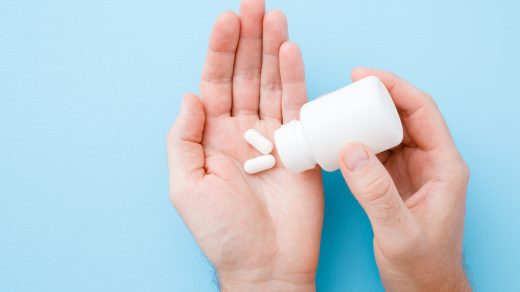In the fast-paced and highly regulated world of pharmaceuticals, technical expertise is undoubtedly crucial. However, it’s often the soft skills that set exceptional professionals apart and drive career success. As the industry evolves, embracing new technologies and facing complex global challenges, these interpersonal and non-technical abilities are becoming increasingly valuable. Let’s explore the top 10 soft skills that can propel your career in the pharmaceutical industry.
1. Communication
Effective communication is paramount in an industry where precision and clarity can literally save lives. Pharmaceutical professionals must be adept at conveying complex scientific information to diverse audiences, from colleagues and regulators to patients and the general public.
Dr. Jane Smith, a senior researcher at a leading biotech firm, emphasizes, “The ability to explain intricate concepts in simple terms is invaluable. Whether you’re presenting research findings, writing reports, or collaborating with cross-functional teams, clear communication is key to success.”
2. Adaptability
The pharmaceutical landscape is constantly changing, with new technologies, regulations, and market dynamics emerging regularly. Professionals who can adapt quickly to these changes are highly sought after.
“In my 20 years in the industry, I’ve seen numerous paradigm shifts,” says John Doe, a veteran pharmaceutical executive. “Those who thrive are those who embrace change and see it as an opportunity for growth and innovation.”
3. Emotional Intelligence
Understanding and managing one’s own emotions, as well as those of others, is crucial in a high-stakes industry like pharmaceuticals. Emotional intelligence facilitates better teamwork, leadership, and patient care.
A study published in the Journal of Pharmaceutical Policy and Practice found that pharmacists with higher emotional intelligence scores demonstrated better patient counseling skills and job satisfaction (Moreno-Fernandez et al., 2020).
4. Critical Thinking
The ability to analyze information objectively and make reasoned judgments is essential in an industry driven by scientific evidence and regulatory compliance.
“Critical thinking isn’t just about problem-solving,” explains Dr. Emily Johnson, a pharmaceutical quality assurance manager. “It’s about asking the right questions, challenging assumptions, and considering multiple perspectives before making decisions.”
5. Teamwork
Modern drug development is a collaborative effort involving diverse teams of scientists, clinicians, regulatory experts, and business professionals. The ability to work effectively in multidisciplinary teams is non-negotiable.
[Image suggestion: A diverse group of professionals collaborating in a laboratory or meeting room setting]
6. Leadership
Leadership in pharmaceuticals goes beyond managing teams. It involves inspiring innovation, navigating ethical dilemmas, and steering organizations through complex regulatory landscapes.
A report by McKinsey & Company highlights that pharmaceutical companies with more diverse leadership teams are more likely to outperform their peers financially (Hunt et al., 2018).
7. Ethical Decision-Making
The pharmaceutical industry often faces complex ethical challenges. Professionals must be able to navigate these dilemmas, balancing business objectives with patient welfare and societal responsibilities.
“Ethical decision-making is not always black and white,” notes Dr. Robert Chen, an ethics consultant for pharmaceutical companies. “It requires a nuanced understanding of various stakeholder perspectives and a strong moral compass.”
8. Time Management
With lengthy drug development timelines and stringent deadlines for regulatory submissions, effective time management is crucial in the pharmaceutical industry.
Sarah Thompson, a clinical trial manager, shares, “Juggling multiple projects, each with its own timeline and requirements, is the norm in our industry. Strong time management skills can make the difference between a successful product launch and a missed opportunity.”
9. Cultural Competence
As the pharmaceutical industry becomes increasingly global, the ability to work effectively across different cultures is more important than ever.
A study in the International Journal of Pharmaceutical and Healthcare Marketing found that cultural competence significantly impacts the success of international pharmaceutical marketing strategies (Yeniyurt et al., 2019).
10. Continuous Learning
The rapid pace of scientific advancement in pharmaceuticals demands a commitment to lifelong learning.
“The knowledge you graduate with will be outdated within a few years,” warns Dr. Lisa Patel, a pharmaceutical education specialist. “Successful professionals in our industry are those who remain curious and continuously update their knowledge and skills.”
Developing Soft Skills in Pharmaceuticals
While some individuals may naturally excel in certain soft skills, the good news is that these abilities can be developed and improved over time. Here are some strategies:
1. Seek feedback: Regularly ask for constructive feedback from colleagues, mentors, and supervisors.
2. Practice self-reflection: Regularly assess your own performance and identify areas for improvement.
3. Pursue professional development: Attend workshops, seminars, and courses focused on soft skills development.
4. Take on new challenges: Volunteer for projects that push you out of your comfort zone and help you develop new skills.
5. Find a mentor: An experienced mentor can provide valuable insights and guidance for developing soft skills.
Conclusion
While technical expertise will always be crucial in the pharmaceutical industry, the importance of soft skills cannot be overstated. As the industry continues to evolve, those who can combine scientific knowledge with strong interpersonal and non-technical abilities will be best positioned for success. By focusing on developing these top 10 soft skills, pharmaceutical professionals can enhance their career prospects, contribute more effectively to their organizations, and ultimately play a greater role in improving global health outcomes.
Citations:
1. Moreno-Fernandez, J., et al. (2020). “Emotional intelligence and job satisfaction in pharmacists.” Journal of Pharmaceutical Policy and Practice, 13(1), 1-9.
2. Hunt, V., et al. (2018). “Delivering through Diversity.” McKinsey & Company.
3. Yeniyurt, S., et al. (2019). “The role of cultural intelligence in marketing strategy implementation in foreign markets.” International Journal of Pharmaceutical and Healthcare Marketing, 13(2), 224-243.



